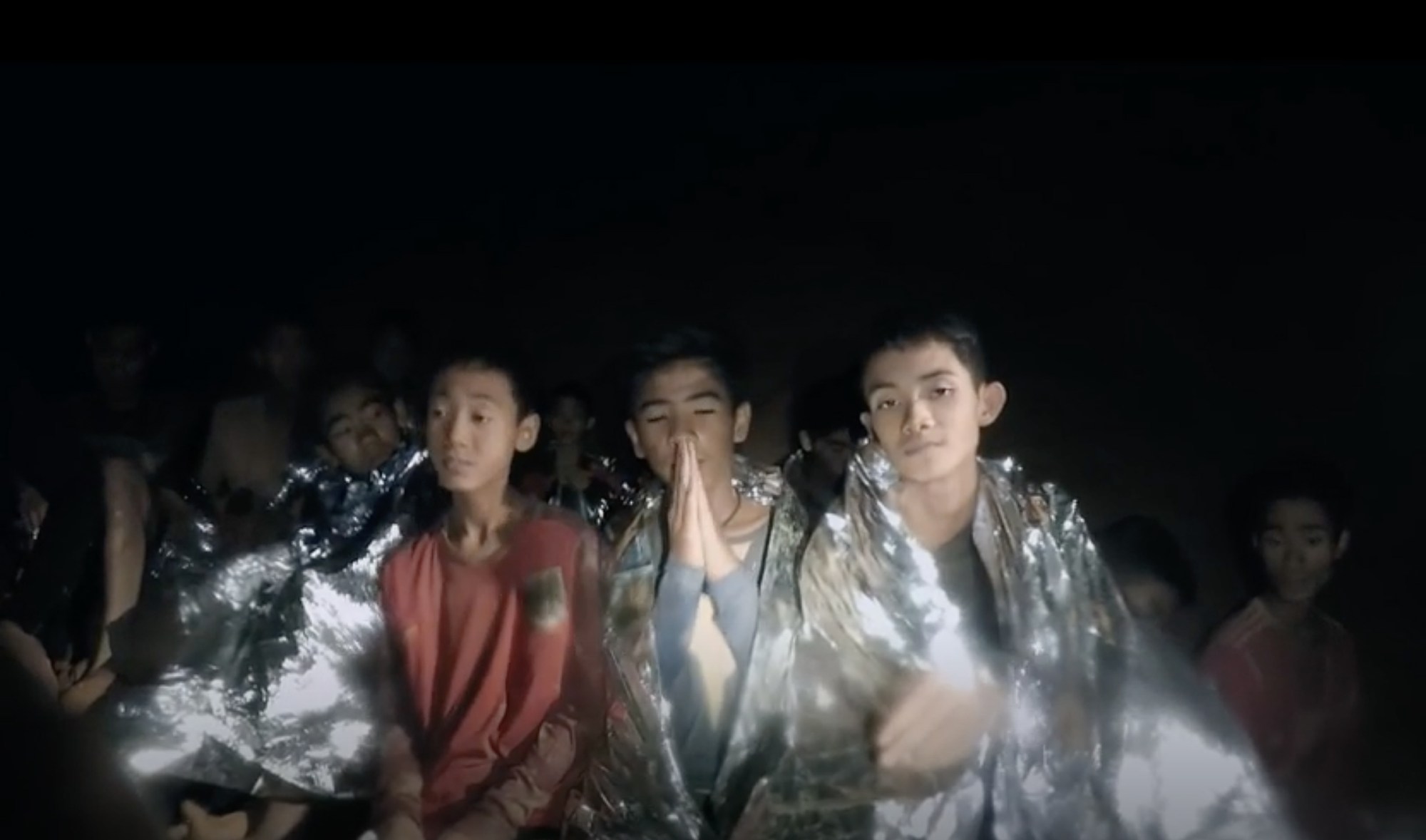
- Festivals
2021 TIFF Notes: Docs: The Rescue (2021)
The People’s Choice Award winner in the nonfiction section of the 2021 Toronto International Film Festival, The Rescue recounts a three-week story that gripped the world’s imagination in the summer of 2018 – a race against time in impending monsoon conditions to locate and extricate 12 members of a junior football team, ages 11 to 16, and their assistant coach trapped inside a flooded cave in northern Thailand. Co-directed by Elizabeth Chai Vasarhelyi and Jimmy Chin, the Academy Award-winning married tandem behind Free Solo, this well-crafted and highly engaging movie, set for theatrical release later in the year by Greenwich Entertainment, is almost certain to be a mainstay on awards season documentary shortlists.
The Rescue takes as its setting the Tham Luang Nang Non cave, a labyrinthine karstic underground system in a mountain range alongside Thailand’s border with Myanmar. The first third or so of the film is about setting the scene and introducing the players whose very specialized sets of skills would come to play such a major role in the undertaking: British cave divers John Volanthen and Richard Stanton; Richard Harris, an Australian diver and physician specializing in anesthesia; elements of the United States military, including Air Force Master Sergeant Derek Anderson; and numerous others. This portion of the 114-minute movie at first runs the risk of seeming too obliging. But it ultimately reaps reward with a deeper appreciation of the nuanced humanity of those on the more active side of the rescue, as when one man talks candidly about potentially being on the Autism spectrum but being able to use that emotional detachment to still do good things.
The rest of The Rescue indulges an expertly presented escalation of stakes, with composer Daniel Pemberton’s music effectively underscoring the dual ticking clocks of unfavorable weather forecasts and dwindling oxygen levels. The natural twists and turns of this highly complex mission (including the surprise discovery of four pump workers not previously known to be missing) create easy buy-in and a certain propulsive energy, giving the film enormous watchability.
After the discovery of the boys, and much debate back and forth, experts eventually settle upon a highly risky extraction plan involving diving them out individually, four boys per day, spread out over three days, under multiple doses of sedatives. Infused with both the type of razor’s-edge drama and constant updates which serve as cable television fodder (one feature film version, The Cave, was already released in 2019, and another big-budget telling, directed by Ron Howard and starring Viggo Mortensen, Colin Farrell, and Joel Edgerton, is currently shooting), these events would capture attention internationally and dominate news cycles for days and weeks.
One social critique of The Rescue might ponder its very literal positioning as a “white savior” story. But the local and federal governments are presented factually as somewhat wishy-washy and uncertain, and the Thai military is underfunded and ill-equipped to handle the specific challenges of this highly unique situation. Additionally, the efforts of the Thai emergency response team, including the 38-year-old Thai Navy SEAL, Saman Kunan, who lost his life, are dutifully taken into account here. When Kunan’s widow honors her husband’s sacrifice by stating, “Generosity is the beginning of everything,” it’s honestly one of the most gut-wrenching moments in a film full of touching selfless acts.
If there are other, more legitimate strikes against the movie, one lies in a wince-inducing song, “Believe,” from Aloe Blacc, used over the closing credits. It seems like nitpicking, but for a film that arrives at so much of its emotional impact quite naturally to resort to grossly simplistic and uninspired, saccharine heartstring-plucking on the way out the door is somewhat deflating.
The credits also confirm another element that may give some viewers greater pause – the use of some staged reenactments by participants in the rescue. While seemingly more to fill in gaps, and illustrative in nature rather than presented for any nakedly emotional catharsis, this bit of manipulation does at times create a pinch of psychological push and pull, perhaps causing an audience to doubt the veracity of what they’re watching.
These demerits notwithstanding, The Rescue is a movie that takes a fascinating tale and presents it remarkably well. In telling the story of the 5,000 Thai citizens and hundreds of other people from around the world who came together to save this stranded group, it generates an incredibly uplifting sense of optimism in humankind, and what can be accomplished when one doesn’t care who gets the credit.

